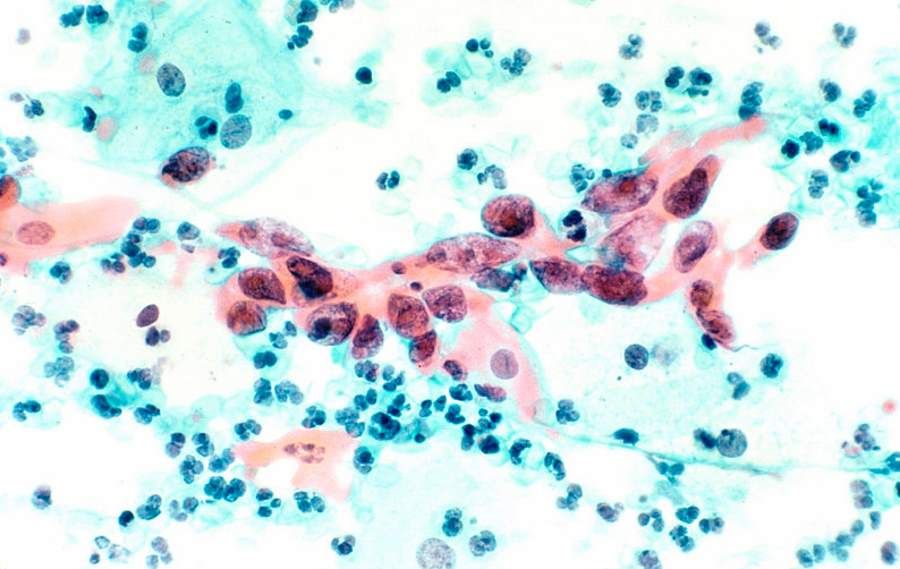New test detects cervical cancer with 100 percent. effectiveness
For most casesoin cervical cancer are blamed on the human papilloma virus (HPV). There are more than 100 rotorts of a kindoin this virus, with ktoOnly a small fraction of them cause the development ofoj of cancer. It is passed on the mainownly through sexual activity, although it is possible to get infected even through contact with semenork of the patient.
The current HPV test detects the presence of the virus, not the actual risk of cancer. HPV often does not cause any problemsow, so many women in whomorych HPV test is positive, undergoes unnecessary stress. Another diagnostic technique is also being used – so-called. Pap test. This is a cytological study thatore involves the collection of probki comocervical sources and examining them under a microscope. Both procedures are not 100 percent. effective.
But British researchers at Queen Mary University of London have developed a new test, whichory has a 100 percent. effectiveness. Their research was published on „International Journal of Cancer”.
– This is a huge advance. Not only are we amazed at how well this test detects cervical cancer, but for the first time we have demonstrated the key role of epigenetics in the development of this cancer. Epigenetic changes are what our test measures, which is why it works so well – said research leader Professor Attila Lorincz. Epigenetics deals with changes in gene expressionow. It’s a process in whichorym the information contained in a gene is read and transcribed into products within it, i.e. proteins. Expression can be modified by external factors.
– In contrast to what mobind researchers and clinicians, we are seeing more and more evidence of theow on the fact that, in fact, epigenetics, not DNA mutations, drives a whole range of early cancersow, including cervical, rectal, oral, colorectal and prostate cancers – assessed Lorincz.
In the study, the researchersoIn the Queen Mary University of London using a new test detected 100 percent of the. Of the eight invasive cancersoin the cervix. 15,744 women between the ages of 25 and 65 were tested. The study took place in Canada. For porownania, the Pap test detected only 25 percent of the. cancerow, and the HPV test 50 percent.
– This is really a huge advance in dealing with HPV-infected women and men, whooThe number goes into the billions worldwide. It will revolutionize research – emphasized Lorincz. – We were surprised at how well the new test could detect and predict early cases of cervical cancer. The test detected 100 percent. cancerow. It is much better than anything currently offered – noted the scientist, and added that it could take at least five years to bring the test to market.
The authors said that the use of this test in clinics would reduce the number of visits to the doctor and follow-up visits. The disease would be detected well in advance. The researchers highlighted the roalso found that if their test were fully implemented, it would be cheaper than at least the Pap test.
Sourceobackground: Queen Mary University of London, photo. National Cancer Institute. In the photo probc a cytologic sheet showing cervical cancer.
